NJ Transit faces fire from Assembly: Why move HQ to more expensive digs amid budget woes
- Oops!Something went wrong.Please try again later.
TRENTON — Members of the Assembly budget committee directed pointed questions at NJ Transit’s leadership — along with a healthy dose of praise — during a nearly four-hour hearing Wednesday that focused on how the agency will handle a changing commuter landscape amid grim budget forecasting in the coming years.
Much of the time was spent on NJ Transit’s looming financial challenges, its recent controversial decision to move its headquarters, how it's preparing for a future that includes zero-emission buses, and how the agency is taking advantage of federal dollars available through the Infrastructure Investment and Jobs Act.
Assemblyman Brian Rumpf, R-Ocean raised several questions about the agency’s decision to move its headquarters to 2 Gateway, an office tower in Newark. The decision to move has drawn scrutiny in recent months over why that building was chosen over others that were cheaper and whether the board should have been more involved, according to reporting by NorthJersey.com.
More: NJ Transit fare hikes? Service cuts? Layoffs? Agency faces a nearly $1B deficit in 2026
More: Questions loom over NJ Transit deal to move to site owned by Murphy campaign donors
One board member resigned over the matter and the agency’s overall fiscal health.
NJ Transit President and CEO Kevin Corbett said when the agency was approved to execute a lease with Onyx Equities, LLC, the politically connected commercial real estate firm that owns the Gateway building, the agency took the steps it usually takes when recommending resolutions to vote on by the board.
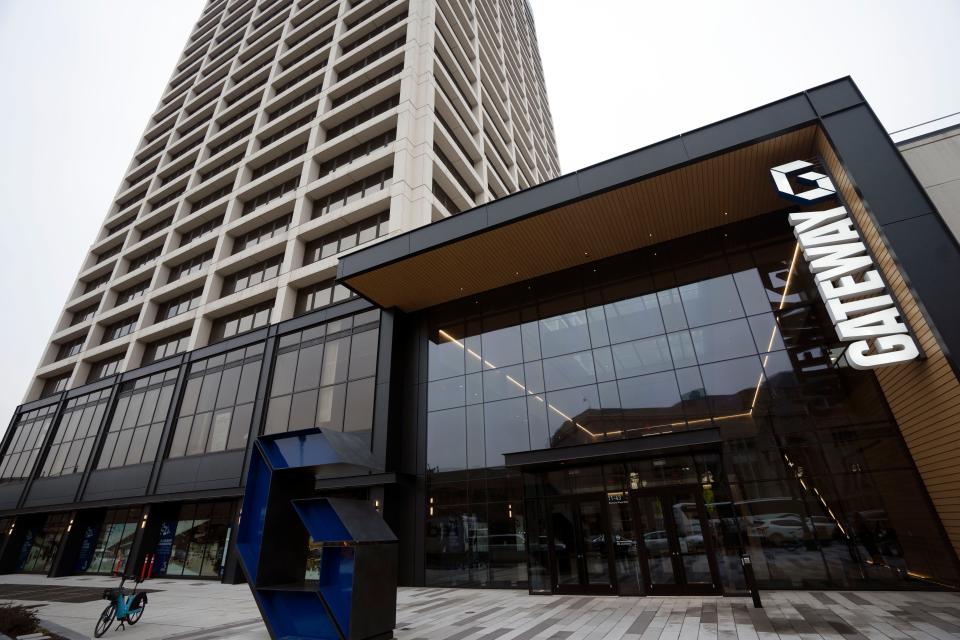
Rumpf asked Corbett why the agency chose to move and seek a larger footprint at Gateway than their current headquarters at 1-2 Penn Plaza East in Newark despite budget constraints.
“It would appear that pretty soon NJ Transit is going to be facing … a very difficult period of time in which tough financial decisions are going to have to be made," Rumpf said. "At this time why are we looking at upsizing instead of downsizing?”
“We should plan for the longer term,” Corbett said, adding later that the cost to make the upgrades to their current building, which they took ownership of last year, was over $100 million, which led to the decision to engage a real estate consultant to search for a new headquarters.
He also said the lease with Gateway, still being finalized, is designed to increase or decrease depending on how many transit employees it consolidates into the new headquarters.
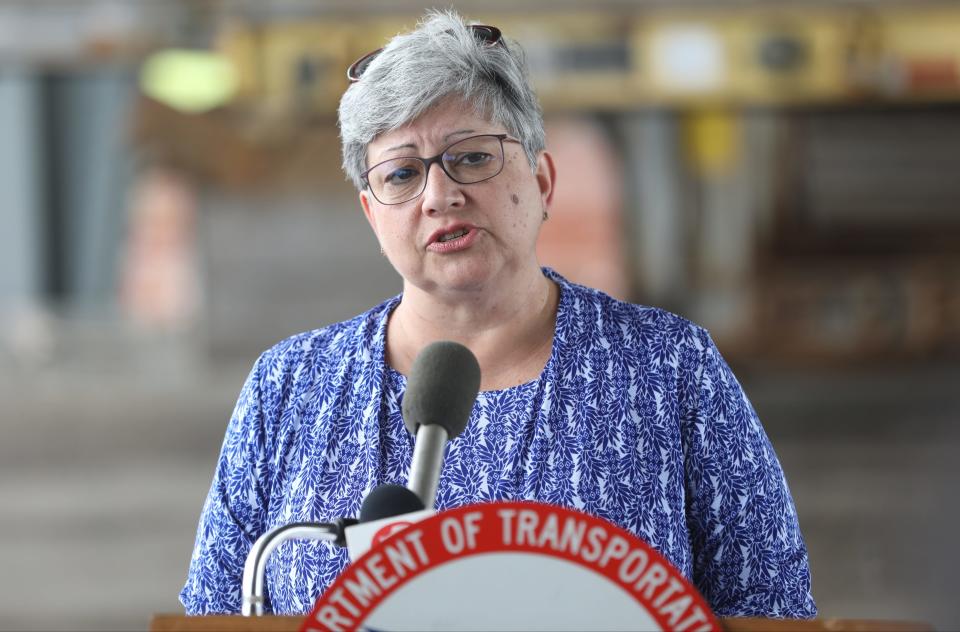
Diane Gutierrez-Scaccetti, chair of NJ Transit and commissioner of the Department of Transportation, said that “this decision was made with the full knowledge of the board” and that “I lose no sleep at night believing that board made a decision any other than what was the best decision for NJ Transit and its customers.”
As Rumpf pushed more on the decision-making process, Eliana Pintor Marin, D-Essex and chairwoman of the budget committee, cut him off, saying this was not the appropriate place to debate the decisions approved by NJ Transit’s board.
Getting to a zero-emission future
Assemblyman Dan Benson, D-Mercer and chair of the transportation committee, asked Corbett whether conversations are taking place with the utility industry to accelerate the transition to zero-emission buses.
Corbett said the agency is working with PSE&G, which was a partner to start a Camden electric bus pilot last year, to update substations that help power the rail network.
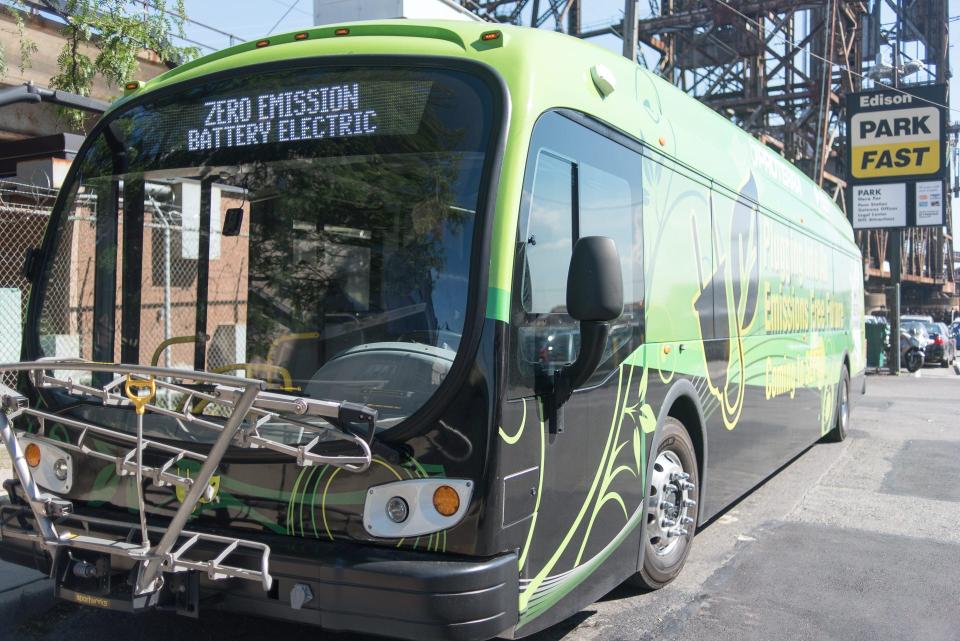
Assemblyman Raj Mukherji, D-Hudson, asked Corbett if the agency has any concern about leaving federal money on the table when seeking grants for zero-emission buses. Applying for competitive federal grants often requires the state or agency to contribute local matching dollars, among NJ Transit's challenges for Hudson River rail tunnel projects Amtrak is trying to accelerate.
“In the short term, for the grants we’ve applied to, we’ve identified a local match, but in the future that is an issue,” Corbett said.
The bigger challenge for the agency is less about purchasing electric buses and more about outfitting the agency’s bus garages to be able to handle the transition to electric, which includes building new infrastructure, reconfiguring space and schedules for charging, and ensuring enough power is available to accommodate the increased use of power, Corbett said.
Restructuring and budget issues
Several lawmakers sought more details about the agency's restructuring, which Gutierrez-Scaccetti announced last month, to prepare for NJ Transit’s nearly $1 billion budget shortfall in fiscal year 2026 as farebox revenue lags.
Corbett said that when he came into office in 2018 the organization went through a similar exercise.
"We’re a relatively lean organization,” he said, but “if the funding is not there, we have to prepare to live within our means."
Corbett said the agency is not aiming to cut service, but instead look at where service can be shifted. One example of how to do that took place recently after DeCamp announced it could no longer provide its Essex County contracted service for NJ Transit. The agency altered some of its existing routes to cover some of DeCamp’s service area, which has seen growing ridership since then.
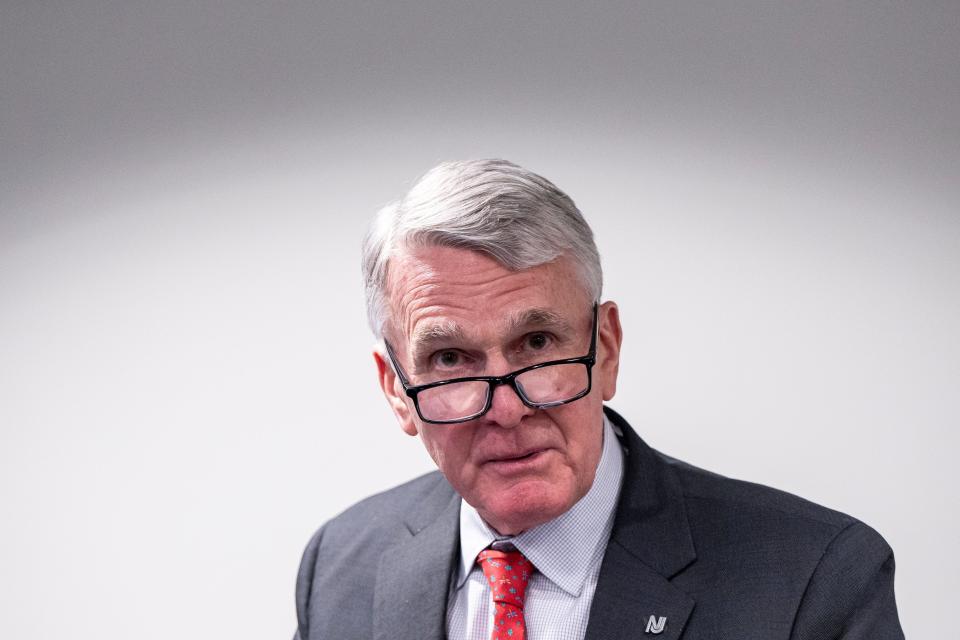
“How can we redo the routes to get a better utilization of service in the short-term?" Corbett said. "In the longer term, I think we’re going to have more passengers than we had in 2019, so any kind of service adjustments we have to look at to bring efficiencies.” He said the agency is redesigning bus networks in Gloucester, Camden and Burlington counties, as well as the Newark area and Hudson County.
Corbett said fare increases are on the table, in response to Assemblyman Gerry Scharfenberger, R-Monmouth, who raised concerns about riders fleeing for other transportation modes if fares increased significantly. Fares have not increased at NJ Transit during Gov. Phil Murphy’s six years as governor.
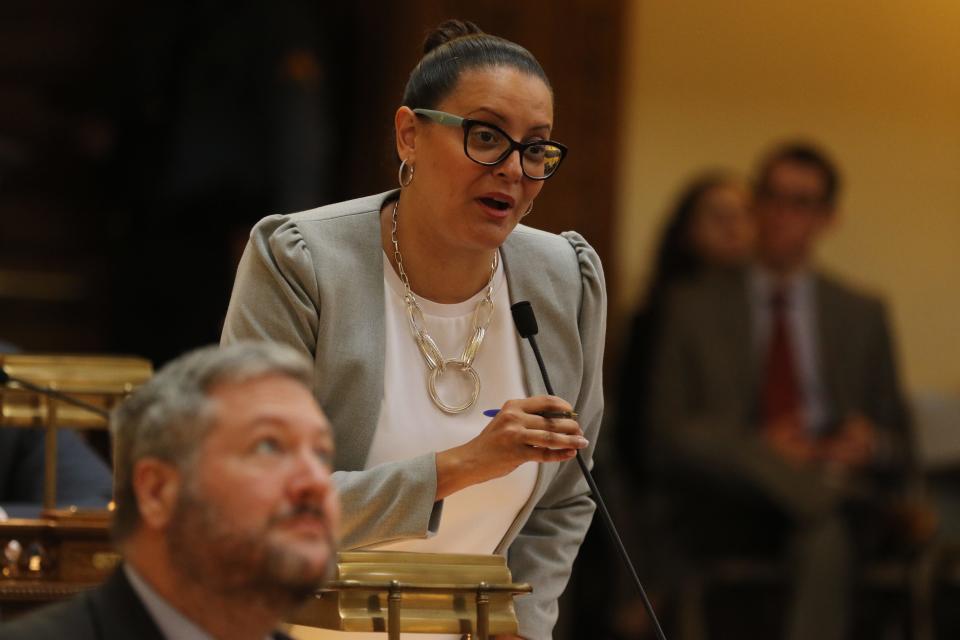
Pintor Marin acknowledged that NJ Transit has larger structural budget issues, in part, because it doesn't have a dedicated revenue stream, but said it likely will be addressed in the next budget year. Since NJ Transit’s formation in 1979, New Jersey lawmakers have never dedicated state aid to the agency by law, making it one of the few such transit agencies of its size in the country without that funding predictability.
“Figuring out how we can catch you up … I think that that’s going to make our jobs a lot harder next year,” she said, adding that finding that state aid is important. “We want to make sure your agency is successful.”
More: Why transit service between NY and NJ was suspended during the rush hour commute
Before digging into gritty questions about the agency’s fiscal hardships, Mukherji heaped praise on Corbett, who has ushered in more than $4 billion in capital improvements, filled the once-depleted workforce of train and bus operators, improved on-time performance across the system, and maintained service through and past the COVID-19 pandemic that has helped recover nearly 75% of ridership compared to pre-pandemic levels.
“You have been so responsive, and your external affairs team, amid a lot of challenging questions and complaints and gripes we send your way,” Mukherji said. "I have to give credit where credit is due."
This article originally appeared on NorthJersey.com: NJ Transit faces tough fiscal queries from lawmakers

